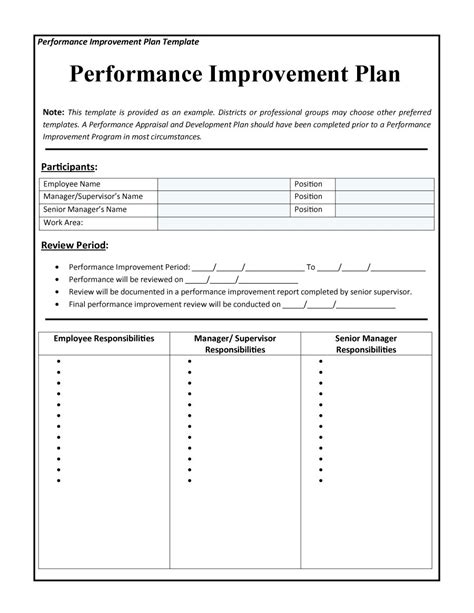Dealing With A Performance Improvement Plan (Pip): Your Guide

Are you facing a Performance Improvement Plan (PIP)? It can be a challenging and stressful experience, but it doesn’t have to be. In this guide, we’ll walk you through the process step-by-step and provide practical tips and advice to help you successfully navigate a PIP and improve your performance.
Understanding Performance Improvement Plans (PIPs)
A Performance Improvement Plan (PIP) is a formal document that outlines specific areas of improvement for an employee who is not meeting the required job performance standards. PIPs are typically used as a last resort before termination, giving employees a chance to improve their performance before losing their jobs.
Why You Might Receive a PIP
There are many reasons why an employer might put an employee on a PIP, including:
- Consistently poor job performance
- Missed deadlines or incomplete work
- Unprofessional behavior or attitude
- Attendance issues
- Failure to follow company policies or procedures
What to Expect When You Receive a PIP
When you receive a PIP, you can expect:
- A meeting with your supervisor to discuss the PIP
- A written document outlining the areas of improvement and the timeline for improvement
- Regular check-ins with your supervisor to track progress
- A final evaluation at the end of the PIP period
Responding to a PIP
Stay Professional and Positive
Receiving a PIP can be a blow to your confidence, but it’s important to stay professional and positive. Remember that the goal of a PIP is to help you improve your performance, not to punish you.
Review the PIP Carefully
Take the time to review the PIP carefully and make sure you understand the areas of improvement and the timeline for improvement. If anything is unclear, ask your supervisor for clarification.
Create a Plan of Action
Develop a plan of action to address each area of improvement outlined in the PIP. This plan should include specific steps you will take to improve your performance, as well as a timeline for completing each step.
Communicate with Your Supervisor
Keep your supervisor informed of your progress throughout the PIP period. If you encounter any challenges or obstacles, let your supervisor know as soon as possible.
Stay Focused and Dedicated
Improving your performance can be a difficult and time-consuming process, but it’s important to stay focused and dedicated to the process. Remember that the end goal is to improve your performance and keep your job.
Successfully Completing a PIP
Meet the Requirements Outlined in the PIP
The most important step in successfully completing a PIP is to meet the requirements outlined in the document. Make sure you complete all the steps outlined in your plan of action and meet the performance standards set by your employer.
Document Your Progress
Keep a record of your progress throughout the PIP period. This can include notes, emails, and other documentation that shows your progress and commitment to improving your performance.
Request Feedback
Ask your supervisor for feedback on your progress throughout the PIP period. This can help you identify areas where you need to improve and make adjustments to your plan of action.
Stay Committed to Improvement
Even after you have successfully completed a PIP, it’s important to stay committed to improvement. Continue to work on the areas of improvement identified in the PIP and seek feedback from your supervisor on a regular basis.
Conclusion
Dealing with a Performance Improvement Plan (PIP) can be a difficult and stressful experience, but it’s important to remember that the goal of a PIP is to help you improve your performance and keep your job. By staying professional, reviewing the PIP carefully, creating a plan of action, communicating with your supervisor, and staying committed to improvement, you can successfully navigate a PIP and improve your performance.
FAQs
What should I do if I disagree with the PIP?
If you disagree with the PIP, you should discuss your concerns with your supervisor and try to come to a resolution. If you are unable to resolve the issue, you may want to consider seeking advice from a human resources representative or an employment lawyer.
What happens if I don’t meet the requirements outlined in the PIP?
If you are unable to meet the requirements outlined in the PIP, your employer may terminate your employment. However, it’s important to remember that the goal of a PIP is to help you improve your performance and keep your job.
Can I request a PIP if I feel like I need to improve my performance?
Yes, you can request a PIP if you feel like you need to improve your performance. Discuss your concerns with your supervisor and ask for guidance on how to request a PIP.
How long does a PIP usually last?
The length of a PIP can vary depending on the employer and the specific situation, but it typically lasts between 30 and 90 days.
